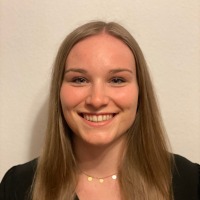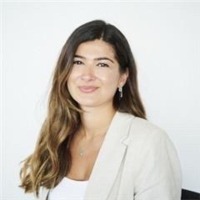8. December 2022 By Samira Hamm and Selinay Kalkan
adesso Cares About Health (CarAH) – the exchange project’s successful start
What is the adesso CarAH project?
The CarAH project is a non-profit project from adesso implemented in cooperation with the Tokoloho Foundation day hospital in South Africa.
How did the project come about?
Tanja Picker (adessi), Gabriele Schmitt (Arbeit und Leben NRW e.V.) and Almud Pollmeier (Südafrika-Hilfe and a local physician) came up with the idea for a joint project on Christmas Eve in 2018. The intended goal of the project is to promote intercultural exchange between young adults and hinges on three key aspects:
- Learning about the respective healthcare system
- Establishing communication and creating connections between the groups
- Getting to know the local culture and conditions
What is the Tokoloho Foundation?
The day hospital is located about 1.5 hours south of Johannesburg and provides healthcare for people in the Tumahole township along with treatments for the chronically ill and educational work.
How did the exchange begin?
An adesso team travelled to the South African region in November 2019 to familiarise themselves with the conditions there. In an initial step, the IT infrastructure was improved and the e-health communication tool MediOne, a secure application boasting encrypted end-to-end communication, was implemented in the day hospital and installed on hospital staff’s smartphones. In winter 2021, another four adessi set out for the Tumahole township to have a look at the day hospital and to get to know the South African participants. They also gained an overview of the local conditions, discussed further details on planning the exchange and worked out the first quick wins.
The visit provided the basis needed to continue planning the exchange. To this end, it was decided that the meeting back in Dortmund, Germany, should take place in autumn 2022. The period for developing the joint project is from autumn 2022 to January 2023. The follow-up meeting in South Africa is expected to take place in January 2023.
What is the goal of the exchange?
During the exchange, the participants will get to know one another and become familiar with the processes and conditions for medical practices and in hospitals, among other things. The two groups will begin developing an ‘information exchange platform for disease-related health education’ – called CarAH – in the course of this project. Efforts in this regard already began on 10 October 2022. The goal is to install the tool in the township in January 2023 as well as to realise further projects together in the long term. One of these further projects is to implement a crowdfunding campaign to finance a photovoltaic system for continuous power supply in order to be able to begin offering Covid-19 vaccinations and other vaccinations for childhood diseases.
Participating organisations
Various organisations are involved in the overall project:
- The Tokoloho Foundation day hospital is funded by the Lewis Balink Foundation and provides medical care in the Tomahole township.
- Südafrika-Hilfe, a non-profit association, aids in developmental public relations and in fundraising for the projects of the Lewis Balink Foundation.
- Arbeit und Leben NRW e.V. supports us and Südafrika-Hilfe in applying for funding and sponsors the professional exchange programme.
We are funded by the German Federal Ministry for Economic Cooperation and Development (Bundesministerium für wirtschaftliche Zusammenarbeit und Entwicklung, BMZ) as part of the Teams UP! programme line, which focuses on the extracurricular exchange of youth groups with a concentration on development policy issues. We at adesso support the project with technology as well as with technical advice regarding the course of the project and its implementation. Everyone involved in the project is a volunteer.
The professional exchange programme
A group of nine South Africans travelled to Dortmund on 9 September 2022 and were received by the project participants the very next day.
The goals of the meeting were:
- To discover differences and similarities between the German and South African healthcare systems
- For each of the project participants to get to know one another
- To brainstorm and plan the initial steps to launch the joint app ‘CarAH’ in the Tumahole township
During their stay in Dortmund, they explored the culture of the Ruhr region, attended a South African church service and Borussia’s match against Schalke and took a trip to Cologne. The team also visited health care institutions, such as the Federal Ministry of Health, Aidshilfe NRW (AIDS Charity North Rhine-Westphalia), the city of Dortmund, the Dortmund Clearing House (Clearingstelle Dortmund), the AIDS charity headquarters in Dortmund and the Marienkrankenhaus (St. Mary’s Hospital) in Schwerte. Together, the participants reflected on the development of the project and recorded results in the interaction room using paper prototypes, profile creating and short stories.
Differences and similarities
The rain culture of South Africa
We would like to share a story with you that made us smile. The nine South African team members were staying in their hotel near the Dortmund office and arranged a 9 o’clock meeting with us, for which Jens Spitczok von Brisinski had prepared a presentation about adesso. All the adessi were on time, only our South African guests were missing. We were starting to get worried and then, at 9:30 am, we began to wonder where they were.
Someone called them. It turned out that they were unable to leave the hotel because of the rain. And finally, at 11:30 am, they calmly arrived at our offices. Jens, however, had needed to go to his next appointment, and we had to adjust our schedule.
We spent the lunch break entertaining ourselves extensively with the topic of ‘leaving the house while it is raining’. As we did, we learned that it is typically not cold in South Africa in winter and that there is also little rainfall. South Africans tend to stay indoors during brief periods of rainfall. We were able to smile about the situation later on and procured an ample number of umbrellas for the coming days – for the good of all our schedules.
Interesting side fact: the English word ‘now’ is interpreted differently in South Africa than here in Germany. There, it means ‘soon’ or ‘sometime’. ‘Now, now’ means ‘promptly’ or ‘quickly’, and ‘immediately’ would be the ‘immediately’ that we as Germans mean. This was an exciting challenge for our joint meetings.
Interest
Our guests showed great interest in the things that we introduced them to. This applied to healthcare as well as leisure activities. We were curious to learn what differences they had discovered.
One difference is that there are very few ambulances in South Africa overall, and they are only used for the most urgent cases. The fact that a woman cannot call for emergency services when she is in labour surprised us all. In this case, there are two options: deliver the baby at home or go to the hospital yourself.
Work methods
Another difference lies in our work methods and overall approach. Stress is inappropriate in South Africa. The motto there is ‘take your time for everything and if you cannot do it today, it can wait until tomorrow’. But we know this saying a little differently. This was clearly evident in our joint meetings.
For example, we Germans are usually able to work for six to eight hours without interruption. In South Africa, people prefer to work for two hours, then take a break for an hour, then continue working and then take another half-hour break. Finding an ideal combination was a challenge for the team, which we were able to overcome together after a brief familiarisation phase.
My personal impressions
Overall, everyone was happy about the visit and getting to know one another. In addition, our guests applauded our health system and praised Germany’s infrastructure. Their favourite dish was kebab and chips. One negative aspect from a South African point of view is the large number of stairs that Dortmund and the surrounding area have to offer. Moreover, we work very much according to rules and in a very deadline-oriented manner and always arrive on time.
In comparison: our schedules are very full and organised, whereas in South Africa, appointments and rescheduling are usually spontaneous – very often even right before the appointment.
Conclusion
All in all, it can be said that the first exchange was a complete success. We were able to give the team insights into the German healthcare system as well as adesso’s tasks and work methods. The groups also got to know each other on a personal basis, and we learned quite a bit about the health system and culture in the Tumahole township. We also began developing the CarAH app and will continue to do so in the coming weeks.
You will find more exciting topics from the adesso world in our latest blog posts.
Why not check out some of our other interesting blog posts?


